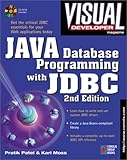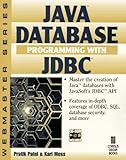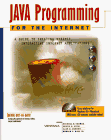Pratik Patel
Developer Advocate @ Azul Systems
Pratik Patel is a Java Champion and developer advocate at Azul Systems and has written 3 books on programming (Java, Cloud and OSS). An all around software and hardware nerd with experience in the healthcare, telecom, financial services, and startup sectors. He's also a co-organizer of the Atlanta Java User Group and North Atlanta JavaScript meetup, frequent speaker at tech events, and master builder of nachos.Presentations
React.js: Super-fast Single Page Web Applications
8:30 PM MDT
React.js is a view library from Facecbook for building performant user-interfaces in JavaScript. In this session, we'll explore React.js and understand why it's a great step forward for building complex UI's that run fast. We'll code up an example web application using React.js and step through the basics of using the library while discussing concepts like the virtual DOM and components.
In this session, we'll explore React.js and understand why it's a great step forward for building complex UI's that run fast. We'll code up an example web application using React.js and step through the basics of using the library while discussing concepts like the shadow DOM and components.
High Performance JavaScript Web Apps Architecture
5:00 PM MDT
In this session, we'll dig deep into the performance aspects of JavaScript and the Web Browser. Single page web applications are becoming popular very quickly, and understanding the low-level and high-level aspects of the browser platform and JavaScript runtimes embedding in them are important.
We'll cover topics such as browser pipe-lining, memory management, testing and measuring performance.
The Modern JavaScript Server Stack
9:00 AM MDT
The usage of JavaScript on the server is rising. In this session, we'll talk about all the tools and utilities that comprise a modern JavaScript application, from a server-side point of view.
The usage of JavaScript on the command line and server has exploded over the past couple of years. Node.js has become popular with development shops from startups to big corporations. With its asynchronous nature, JavaScript provides the ability to scale dramatically. Along with the ability to drive your server-side applications, there are a number of tools that help with all aspects of browser development: testing, packaging, and deployment. In this session, we'll explore these tools and show you how you can incorporate these into your environment.
Applied Functional Programming in JavaScript
10:45 AM MDT
JavaScript has first class support for functional programming. There are many techniques for writing code in more clear, and concise form, in JavaScript using these techniques. In this session, we'll explore these techniques and talk about how to implement them. We'll use commonly used libraries like underscore to make elegant JavaScript code.
JavaScript has first class support for functional programming. There are many techniques for writing code in more clear, and concise form, in JavaScript using these techniques. In this session, we'll explore these techniques and talk about how to implement them. We'll use commonly used libraries like underscore to make elegant JavaScript code.



